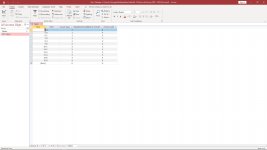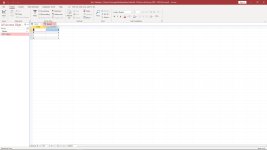Hello
I have an Access file that has a data column called type. In one column I want to count and number them, and in another column I want to put the total number of them in front of the similar data.
I Attached t the zip file and the first picture and the result picture.
very Thanks .
(I am Habib. I am very happy to be with you. I work in the field of Access and Excel.)
I have an Access file that has a data column called type. In one column I want to count and number them, and in another column I want to put the total number of them in front of the similar data.
I Attached t the zip file and the first picture and the result picture.
very Thanks .
(I am Habib. I am very happy to be with you. I work in the field of Access and Excel.)





